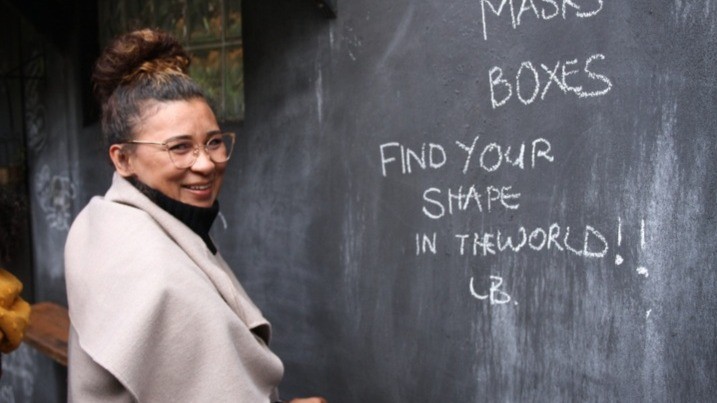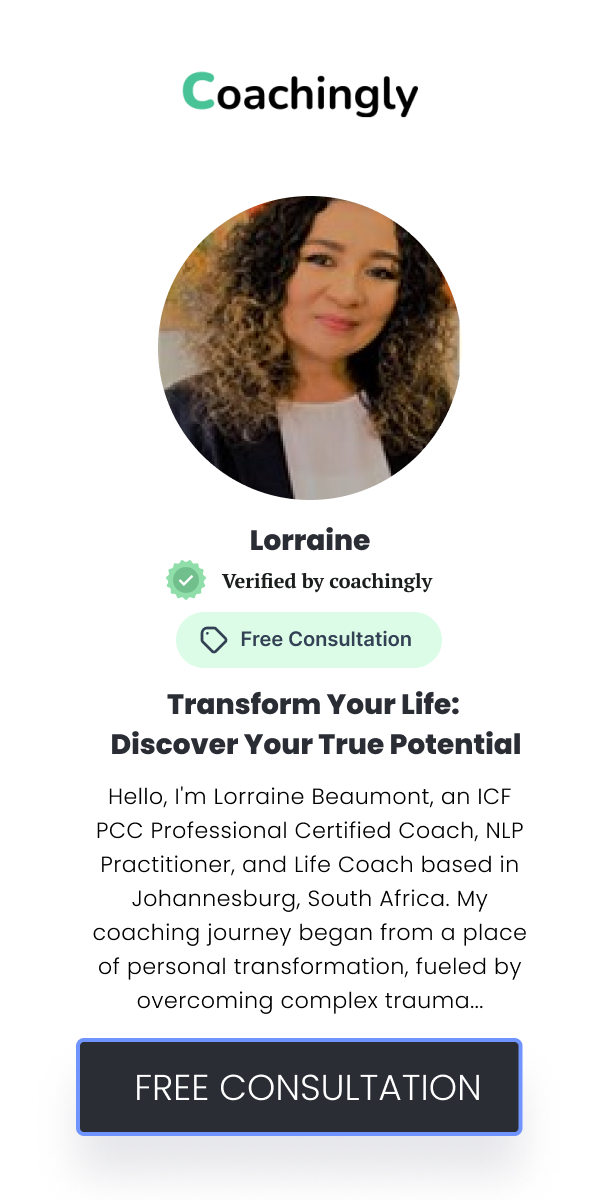
Embracing Self-Acceptance on the Journey to Self-Mastery
![]() Lorraine Beaumont
Lorraine Beaumont
![]() October 18, 2024
October 18, 2024
We live in a world where conditioning, socialization, and inherited beliefs often tell us we're not enough. Acceptance is frequently based on external factors like appearance, achievements, power, or our ability to conform. This conditioning leads to a struggle for self-mastery, where we end up fighting ourselves, trying to repress our basic drives because they're deemed "unacceptable." The constant chase for "perfection" becomes exhausting because it's an unrealistic and unattainable ideal. But what if the key to true growth lies not in striving for perfection, but in embracing who we already are? Self-acceptance is the foundation for genuine self-mastery. Mastery is often seen as discipline and skill, but how can we change and master what we don't first observe and accept? Self-acceptance is rooted in self-awareness and self-compassion. Without accepting ourselves - flaws, strengths, and all - our efforts toward growth become superficial. In this post, we'll explore the concepts of self-acceptance and self-mastery, why they're deeply interconnected, and actionable steps to develop both in your life. What is Self-Acceptance? Self-acceptance is the full acknowledgement and embrace of who you are, without judgment. It's about loving and making peace with every part of yourself - your past, your present, your body, strengths, flaws, successes, and failures - without the constant need to measure yourself against others or societal standards. This doesn't mean you lack the desire for improvement, but it does mean giving yourself the grace to be human. When you accept yourself, you're free from the need for constant external validation. Growth can then occur from a place of love and desire, rather than fear or inadequacy. Why is Self-Acceptance Important? Reduces Self-Criticism: Accepting yourself means observing yourself with curiosity rather than criticism. You can acknowledge where you are and how you got here, then intentionally decide where you want to go. Fosters Emotional Resilience: Self-acceptance builds resilience, allowing you to embrace both the highs and lows of life without being derailed by failure or rejection. Improves Relationships: The relationship you have with yourself sets the tone for all others. Accepting yourself allows you to approach others with empathy and less judgment. What is Self-Mastery? Self-mastery is the ability to take control of your thoughts, emotions, and actions to achieve your goals and align with your highest values. It's the continuous process of becoming the best version of yourself through cultivating discipline, emotional intelligence, and mindful habits. Self-mastery doesn't mean "perfect" control over your life. Instead, it's about understanding your motivations and tendencies so you can make conscious choices aligned with your purpose. It's the art of balancing growth with self-acceptance. Core Elements of Self-Mastery: Self-Awareness: Understanding your emotional triggers, thought patterns, and behaviors, while observing yourself without judgment, helps you make intentional changes. Discipline: Cultivating supportive habits and routines requires setting boundaries, managing distractions, and staying focused on what truly matters. Emotional Regulation: Learning to manage emotions rather than letting them control you allows for thoughtful responses to situations, rather than impulsive reactions. The Connection Between Self-Acceptance and Self-Mastery At first, self-acceptance and self-mastery may seem contradictory. How can you accept yourself as you are while still striving to improve? The key is realizing that self-acceptance is not complacency - it's the foundation upon which genuine growth is built. When you accept yourself, you're no longer striving to change out of inadequacy. Self-mastery becomes about optimizing your natural strengths and addressing challenges with compassion. You're not fighting yourself; you're working with yourself. Why They Work Together: Balanced Growth: Self-mastery pushes you toward growth, while self-acceptance ensures that you're growing for the right reasons. This balance prevents burnout and frustration. Inner Peace and Outer Achievement: Self-acceptance helps you find peace with who you are, while self-mastery allows you to build a future aligned with your values. Sustainable Change: Change rooted in shame or fear is unsustainable. Self-mastery grounded in acceptance leads to more lasting and meaningful transformation. Practical Steps to Cultivate Both 1. Start a Self-Acceptance Practice: Affirm Your Worth: Begin each day with affirmations focusing on your inherent value. Try phrases like "I am enough as I am" or "I accept myself fully, even as I grow." Self-Compassion Breaks: When you catch yourself in self-criticism, pause and treat yourself as you would a friend. Ask, "How can I show myself kindness right now?" Journal Your Strengths and Struggles: At day's end, reflect on both your successes and challenges. Accept them without judgment, acknowledging that both are part of your journey. 2. Develop Self-Mastery through Mindfulness: Set Clear Goals: Identify areas in your life for growth. Write them down and create actionable steps aligned with your values. Practice Mindfulness: Mindfulness increases self-awareness and emotional regulation. Dedicate a few minutes each day to meditation or mindful breathing, observing your thoughts without judgment. Build Discipline through Small Habits: Start with small, manageable habits contributing to your goals. Consistency is key to self-mastery, so celebrate small wins and be patient with setbacks. Conclusion: The Power of Integrating Self-Acceptance and Self-Mastery Both self-acceptance and self-mastery are lifelong practices that lead to a fulfilling and empowered life when combined. Accepting yourself doesn't mean giving up on growth; it means embracing imperfections and working toward your highest potential from a place of self-love. As you cultivate self-awareness, compassion, and discipline, you'll find yourself more capable of setting and achieving meaningful goals. In the end, mastering yourself isn't about becoming someone else - it's about becoming more authentically you. Call to Action: Are you ready to start your journey toward self-acceptance and mastery? Download my Self-Awareness Guide and take the first step toward a life of purpose, balance, and empowerment! https://acrobat.adobe.com/id/urn:aaid:sc:eu:81400483-d58f-4dbe-91cd-3de10c337d29

Recent Articles
ICF (PCC) Professional Certified Coach: Ensuring Excellence in Coaching
What is an ICF (PCC) Professio...
![]() Jun 17, 2024
Jun 17, 2024
Unlocking the Power of NLP Practitioners: Techniques, Applications, and Ethics
What is NLP?Neuro-Linguistic P...
![]() Jun 16, 2024
Jun 16, 2024
Mastering Life Transformation: The Role and Impact of a Life Coach
What is a Life Coach?A life co...
![]() Jun 15, 2024
Jun 15, 2024
The Ultimate Guide to Personal Growth Coaching
Understanding Personal Growth ...
![]() Jun 14, 2024
Jun 14, 2024
Mastering Team Coaching: A Comprehensive Guide to Building High-Performing Teams
What is Team Coaching?Team coa...
![]() Jun 13, 2024
Jun 13, 2024
Achieving Transformation: The Holistic Approach to Coaching
Understanding Holistic Coachin...
![]() Jun 12, 2024
Jun 12, 2024
Exploring Life Coaching: Empowerment, Growth, and Personal Transformation
What is Life Coaching?Life coa...
![]() Jun 11, 2024
Jun 11, 2024
How ICF PCC Certification Can Elevate Your Coaching Career
Understanding ICF PCC Certific...
![]() Jun 10, 2024
Jun 10, 2024
The Financial Benefits of Being an ICF PCC Certified Coach
Overview of ICF PCC Certificat...
![]() Jun 09, 2024
Jun 09, 2024
Building a Thriving Coaching Practice with ICF PCC Certification
Understanding the ICF PCC Cert...
![]() Jun 08, 2024
Jun 08, 2024
Mastering NLP Techniques: How to Excel as an NLP Practitioner
Neuro-Linguistic Programming (...
![]() Jun 07, 2024
Jun 07, 2024
Exploring Neuro-Linguistic Programming: What Every NLP Practitioner Needs to Know
Understanding Neuro-Linguistic...
![]() Jun 06, 2024
Jun 06, 2024
The Role of NLP Practitioners in Personal Development and Therapy
Understanding NLP: A Powerful ...
![]() Jun 05, 2024
Jun 05, 2024
The Power of Positive Thinking: Transform Your Life with Life Coaching
Understanding the Impact of Po...
![]() Jun 04, 2024
Jun 04, 2024
Discovering Your Purpose: A Guide to Finding Clarity with a Life Coach
Understanding the Concept of P...
![]() Jun 03, 2024
Jun 03, 2024
Mastering Self-Confidence: Techniques Taught by Leading Life Coaches
Self-confidence is not just a ...
![]() Jun 02, 2024
Jun 02, 2024
Navigating Life Transitions: Why You Need a Personal Growth Coach
Understanding Life Transitions...
![]() Jun 01, 2024
Jun 01, 2024
Balancing Act: Achieving Work-Life Balance Through Personal Growth Coaching
Understanding Work-Life Balanc...
![]() May 31, 2024
May 31, 2024
The Power of Accountability: How Coaching Holds You to Your Commitments
Setting the Stage: Understandi...
![]() May 30, 2024
May 30, 2024
Navigating Team Dynamics: Overcoming Challenges Through Coaching
Understanding Team DynamicsTea...
![]() May 29, 2024
May 29, 2024
Effective Strategies for Team Coaching: Techniques That Drive Results
Team coaching plays a pivotal ...
![]() May 28, 2024
May 28, 2024
The Power of Team Coaching: Transforming Groups into High-Performing Teams
Understanding Team CoachingTea...
![]() May 27, 2024
May 27, 2024
Navigating Career Transitions: A Guide to Using Life Coaching for Professional Success
Understanding Career Transitio...
![]() May 26, 2024
May 26, 2024
The Power of Mindset: How Positive Psychology Techniques in Life Coaching Foster Success
Understanding Life Coaching an...
![]() May 25, 2024
May 25, 2024
